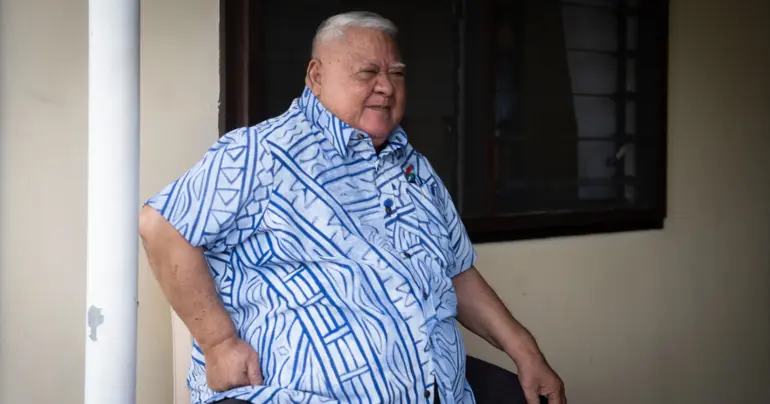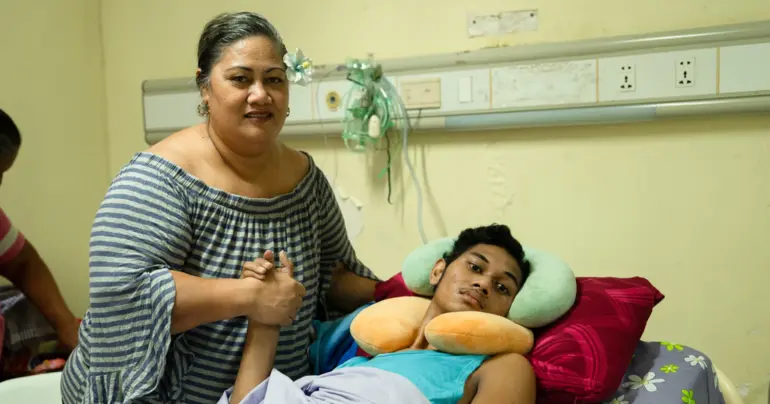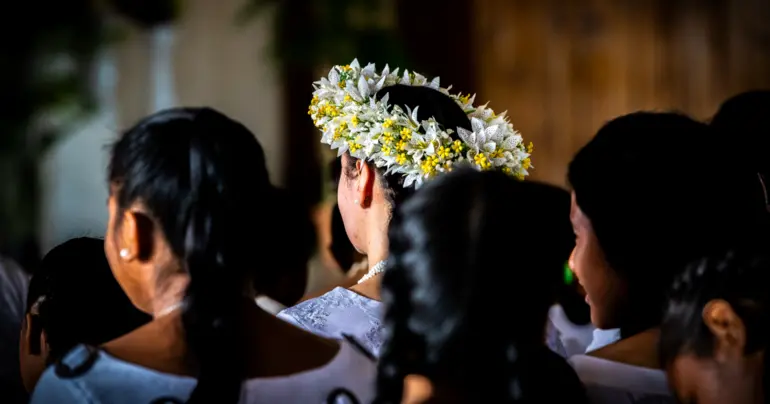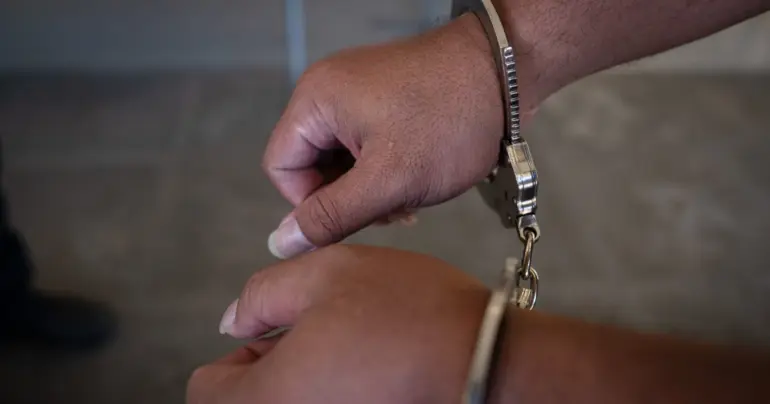Support for tobacco sellers age increase
 By Sapeer Mayron
•
15 January 2021, 11:00AM
By Sapeer Mayron
•
15 January 2021, 11:00AM
Non-Government organisations are backing the move to lift the legal age to sell tobacco to 21 years, saying it will keep cigarettes out of young people’s lives.
Samoa Cancer Society Chief Executive Officer, Su’a John Ryan said when young people sell tobacco products, they are less likely to check the ages of other young people trying to buy cigarettes.
The legal age to buy and sell tobacco products is currently 21, while the legal age to sell it is 15 (under the Tobacco Control Act 2008).
“I firmly support the bill in that anything, any action we can take that will remove tobacco from young people’s hands is a step in the right direction,” Su’a said.
“It puts the emphasis on retailers to not just let younger children step up to the counter and sell tobacco.”
The move was proposed in the Tobacco Control Amendment Bill 2020, which Members of Parliament first saw in December 2020.
Director-General of Health Leausa Dr. Take Naseri explained that among other reasons, the decision to raise the age to 21 is in response to international concern over child labour.
Su’a said anything that removes cigarettes from young people, which reduces their familiarity with the product, will help stop them from ever starting the habit.
But ultimately he would like to see tobacco products banned in Samoa and for the health and welfare problems that come with them gone.
“That would be the utopian ideal. It is the only product I know of that there is no benefit to it.
“Whatever benefits we are getting from taxation or income, the negatives far outweigh the positives.”
Salvation Army addiction services team leader, Sailivao Aukusitino Senio, said changing the law is a great start but was worried about how the law might be enforced.
“The Salvation Army absolutely supports the increase of the age from 15 to 21,” he said.
“We we all know […] the significant harm caused by tobacco consumption, so any step towards addressing that is a great step.
“The Ministry of Health is doing a lot right now to implement a smoking cessation programme so steps like raising the age all helps.”
During the pre-Parliament sitting discussions, Member for Anoamaa East, Alaiasa Sepulona Moananu said there seem to be problems implementing and policing the Tobacco Control Act because he has seen people smoking on buses, which is currently prohibited.
Clients in the Salvation Army addiction services programmes that smoke have typically tried and failed to quit before, Sailivao said.
“They have either tried to quit previously and couldn’t or they really want to quit. People are recognising that it’s not only a health issue but from an economic point of view too people say it costs a lot and that has a negative impact on their families.
“We know tobacco is a highly addictive substance so people need support to be able to stop. We would like to see all measures to stop people from ever having that first puff.”
Member for Vaimauga Sisifo No. 1 Lenatai Victor Faafoi Tamapua said he was worried about job opportunities for school leavers, many of whom are between 15 and 21 years old.
“I think that is a little bit misguided,” Su’a said. “Most of the school leavers at that age are not cashiers as such, and there are other areas in the shop where they can find work instead of retailing alcohol and tobacco.
“While we are concerned about youth finding employment, it has to be suitable for them, we can’t put young people into any old job.”
Another change proposed in the bill is to allow the Government to take a three-year license payment in advance from tobacco manufacturers.
Su’a said this move risks reducing regulation and supervision from manufacturers where there ought to be more.
“We would prefer to see year to year regulation, that way there is more control over the tobacco industry. The last thing we want is to make it easier to retail or manufacture tobacco.
“Every time we take away some of these oversight measures it waters down the effectiveness of the oversight.”
A report published in 2019 by the United Nations found tobacco use kills 200 Samoans a year. Nearly half of those deaths are in people under 70-years-old, and 20 per cent are from second hand smoking.
The report added that in 2017 tobacco use cost the Samoan local economy $47 million, which is equivalent to 2.3 per cent of the country’s gross domestic product.
Sailivao said addressing smoking in young people needs to come from the adults around them, who might influence them to take up the habit if they see it around them.
“It’s a learned behaviour. Once people see it, they try it and become addicted to it.”
The Salvation Army is able to offer quitting support measures to their clients, but due to limited funds and resources it cannot expand the programme very widely.
But the Ministry of Health is looking to implement a nationwide scheme, which Sailivao said the addiction services is very excited about.
Those who do access the service have successfully quit, either for good or long term, and were able to work towards quitting again even after a lapse.
“People are without a doubt making change,” Sailivao said.
“We also run a psychoeducational programme which helps them address all of that learned behaviour stuff, and understanding why they continue to smoke and helping people with strategies as to how to stop smoking.”
During pre-Parliament discussions Namulauulu Sami Leota (Faasaleleaga No. 2) said licenses for tobacco manufacturing companies and the products they then sell are money makers for Samoa.
“A total of $55 million was contributed by the industry into the economy of Samoa, $23 million solely from excise tax on tobacco products,” he said.
The full bill is not yet available for public viewing.
Tags
 By Sapeer Mayron
•
15 January 2021, 11:00AM
By Sapeer Mayron
•
15 January 2021, 11:00AM











